PORT-AU-PRINCE — Doctors read about doctors. Musicians read about musicians. Journalists read about other journalists.
I usually use this space to tell you stories from our orphanage, from Haiti, from amazing children who overcome the odds to thrive and grow and love and learn.
But as a journalist, when I read about two Haitian reporters who tried to do their job, to tell the story of afflicted people, and instead were murdered and set on fire in the streets, I need to pause the normal storytelling and relay to you the true, constant and unnerving sensation of being in Haiti these days:
Fear.
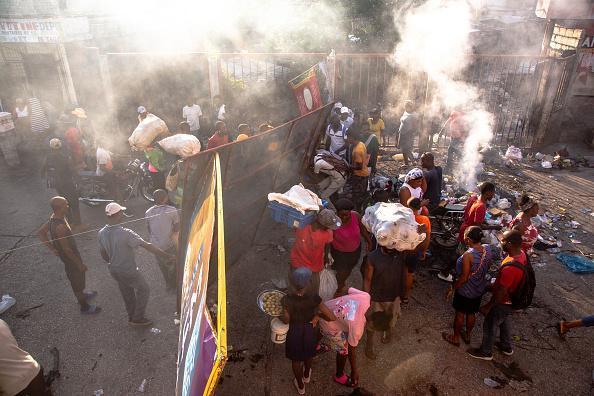
PORT AU PRINCE, HAITI – SEPTEMBER 13: Demonstrators set fire during a protest against the rising gasoline prices. (Photo by Georges Harry Rouzier/Anadolu Agency via Getty Images) |
Haiti is descending into a hellish place for its citizens. The crumbling of the government, the assassination of the previous president, and the total paralysis of the current leader, Ariel Henry, has allowed gangs to swallow up chunks of this country. Some estimates have them controlling nearly three quarters of the capital city of Port-au-Prince, where our orphanage — and nearly half the country’s population — is located.
Haitian citizens calculate danger by simpler metrics: is the street clear? Are the stores open? Is it possible to go to the market? The bank? The hospital?
Increasingly, the answer is no. Our orphanage is part of a security group that updates hourly on the situation in the streets. The reports are stunning. This street closed by violence. That street closed by gunfire. Burning tires everywhere. Human blockades. People throwing rocks. People being shot at, even killed.
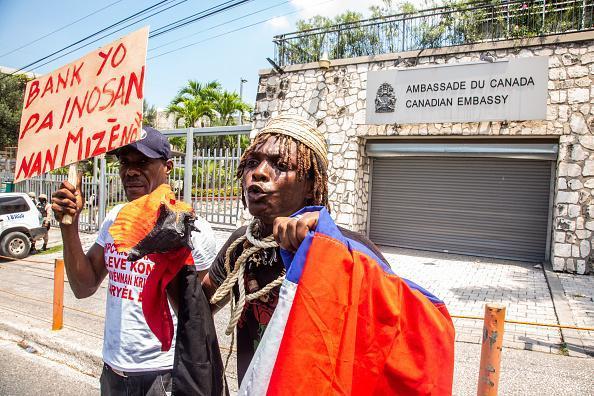
PORT AU PRINCE, HAITI – SEPTEMBER 07: Demonstrators from different cities, holding banners and placards, gather to protest with demanding the removal of Prime Minister Ariel Henry as he mishandled the various socio-economic crises the country is currently going through. Demonstrators also blame banks and embassies for the misery of the Haitian people. (Photo by Georges Harry Rouzier/Anadolu Agency via Getty Images) |
The citizens have had it. They are in the streets now, protesting, screaming, rallying, but to whom? Who is listening? The gangs work both sides, they are hired by political leaders to squash resistance, even as they create resistance to the political leaders’ control.
The police are overwhelmed. They surge to show the gangs their presence, and are driven back in storms of gunfire. They are killed. They are intimidated. They are demoralized. Sometimes they join the other side.
The result is a dizzying chaos which leaves you unsure of who is who, what is what, which side is being protected and which is being attacked. You are frozen in place, unable to live even the basics of what most people on this planet would call a normal human life.
Fear does that.
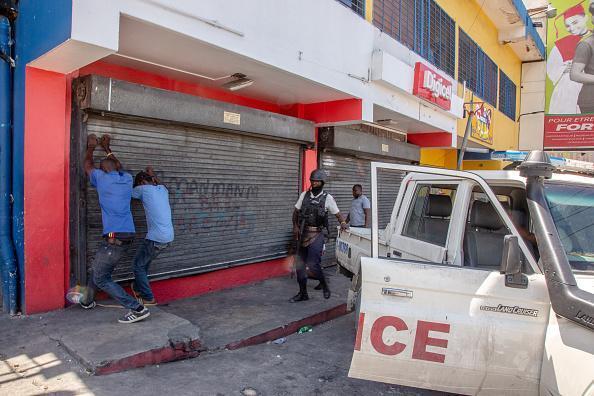
PORT-AU-PRINCE, HAITI – SEPTEMBER 14: Protesters continue demonstration on the second day of general mobilization as they barricade all major roads and protest rising gas prices and demand the resignation of Prime Minister Ariel Henry (Photo by Georges Harry Rouzier/Anadolu Agency via Getty Images) |
The high cost of feeling secure
When we ask for help with our orphanage these days, it is increasingly for protection. Money for security guards. Money to build higher walls and taller gates with barbed wire. Money for armored vehicles. Travel around the streets of Port-au-Prince has become a roulette wheel, you pray you don’t encounter a sudden angry mob, or a blockade that locks you in place, or kidnappers who box you in and descend on your vehicle. After food and water, bulletproof cars may be the highest demand item in Haiti.
[A quick view of the security booth at our first campus]
Try and imagine a world where sending your kids off to school in the morning is a calculated risk. Where a trip to the bank has to be done with the stealth of a secret agent. Where merely trying to cover a story, to talk to the poor people who are suffering under this terror, gets you shot, killed and burned to a crisp, which is what happened to Tayson Latigue and Frantsen Charles, who were part of a group of seven journalists who this week went into Cité Soleil, a gang-controlled slum area. They were just trying to chronicle the living hell that neighborhood has become. They reportedly came under attack from warring gangs. Five of the journalists escaped. Latigue and Charles were not as fortunate.
When you cannot even relay the news of violence, then violence has won. Imagine the chilling effect this will have on any other journalists who simply want to tell the world what is going on.
Fear does that, too.
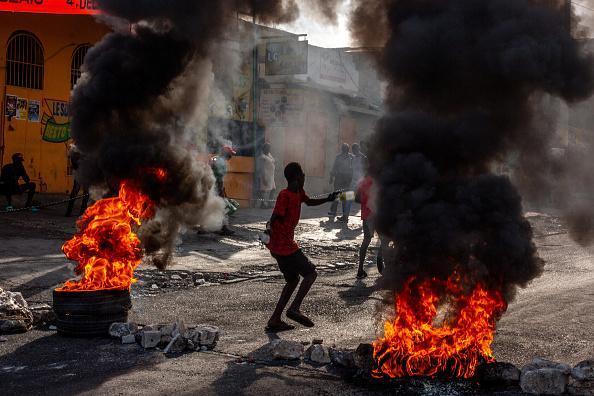
PORT AU PRINCE, HAITI – SEPTEMBER 13: Clashes erupt in a protest against the rising gasoline prices. (Photo by Georges Harry Rouzier/Anadolu Agency via Getty Images) |
Stability comes in many forms, still out of reach
I am often shaken when I visit the poor villages in the Haitian provinces, where many of our children come from. I constantly see things that, as a journalist, I feel the world should know about. The subhuman conditions. The lack of medical care. The challenges of finding basic staples of human survival. I write a small fraction of what I actually witness. The rest goes unreported.
And this is the looming danger in Haiti now. As bad as the stories you read may be, they don’t begin to truly tell the tale. The level of suffering is immeasurable. And there are increasingly few people there — or willing to go there — to tell it.
We have a child right now, a one year-old boy, who, in the process of taking him in, was diagnosed with tuberculosis. His father had been shot to death by a gang member. His mother could not get him vaccinated.
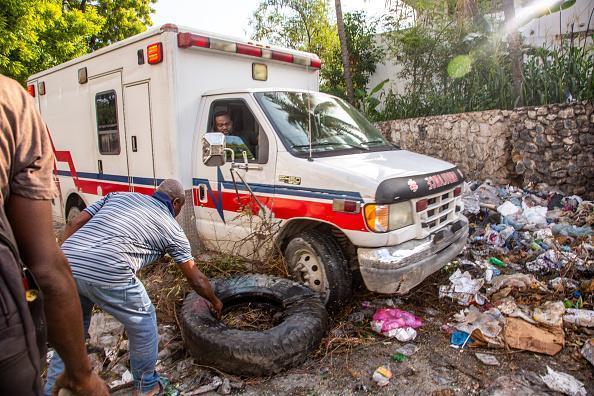
PORT AU PRINCE, HAITI – SEPTEMBER 13: A man removes a tire for an ambulance as people protest against the rising gasoline prices. (Photo by Georges Harry Rouzier/Anadolu Agency via Getty Images) |
The hospital where we took him just called to tell us they are clearing out, because doctors and nurses cannot get to work due to the violent streets, Therefore, we should come and pick up the child immediately. When we asked “What are we to do with a child with tuberculosis at an orphanage?” we get no answer. It’s not their problem. It can’t be their problem. They are trying to survive like everyone else.
Take that one incident and multiply it a hundred thousand times, and you start to understand all the stories that are NOT being written in Haiti. And thanks to the murder of those two brave reporters, those stories have an even less likely chance of reaching the world. The expression in our business is democracy dies in darkness. I pray that humanity does not dies there as well.
Otherwise, fear will have won for good.
Top image: Port-au-Prince, Haiti – September 7, 2022. (Photo by Georges Harry Rouzier/Anadolu Agency via Getty Images)
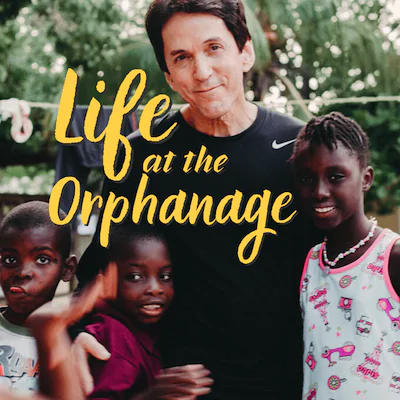
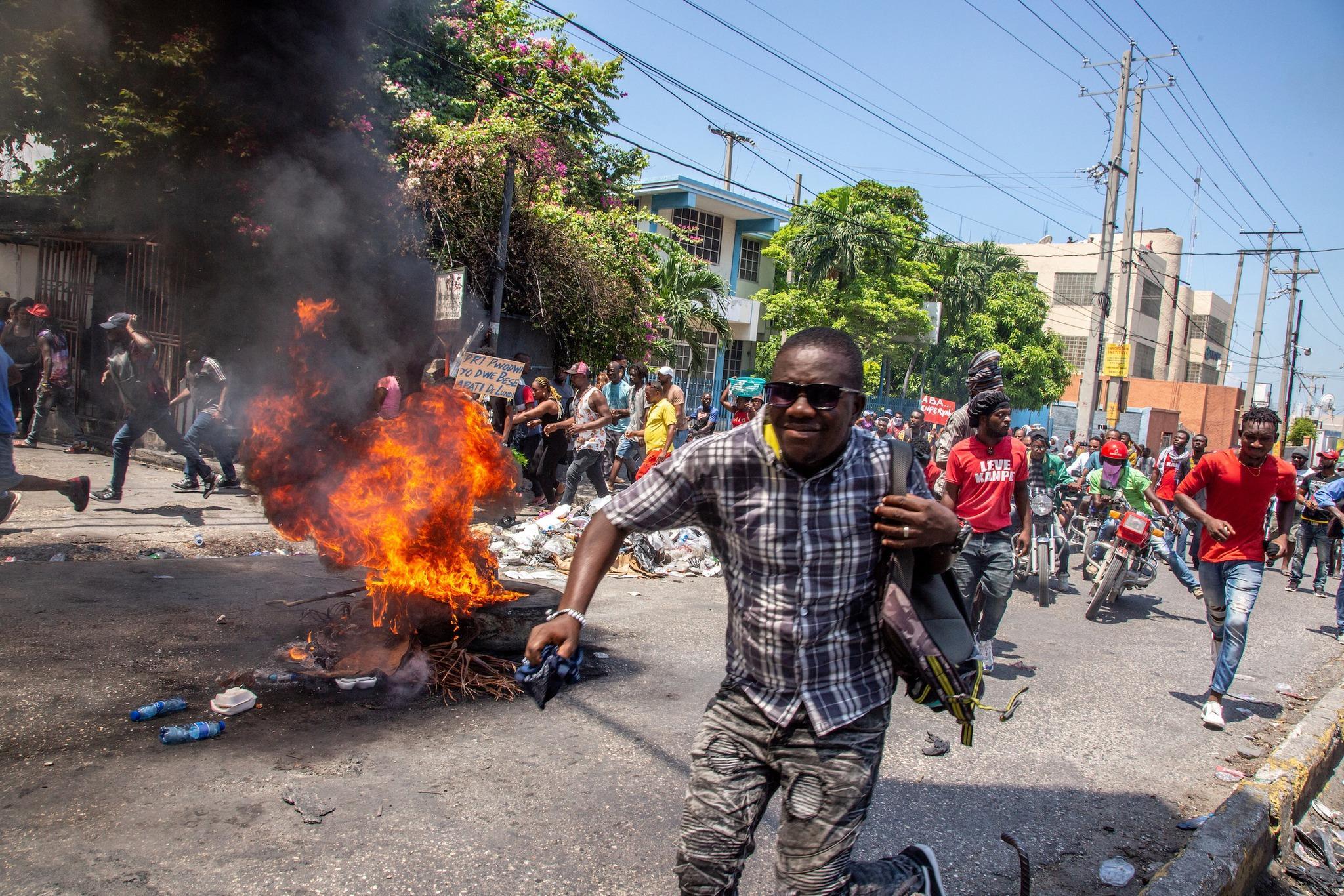
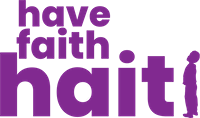
 Join a community of monthly donors
Join a community of monthly donors
0 Comments